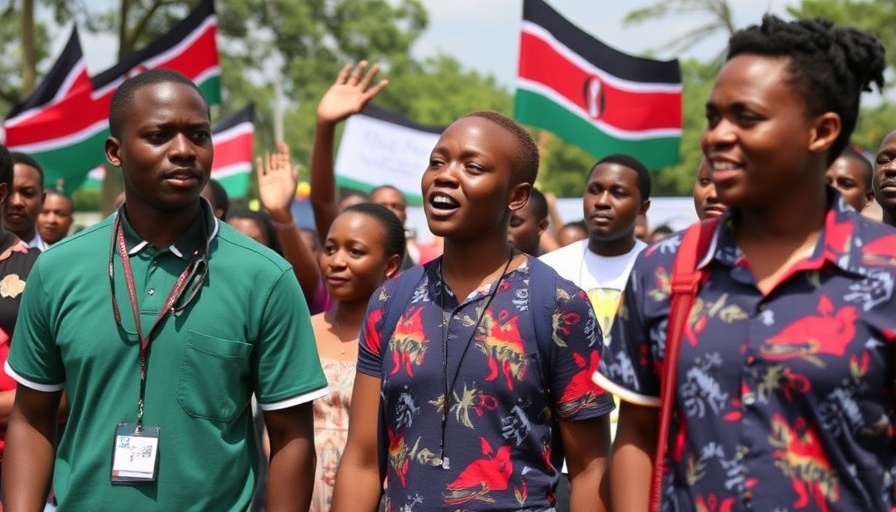
Gen Z and the Shifting Landscape of Kenyan Politics
As Kenyan President William Ruto convened his Cabinet for a critical annual retreat, the stark contrast with previous gatherings signaled a pivotal moment in the nation’s political trajectory. The absence of many familiar faces and the emergence of a reshaped cabinet underscores the implications of youth-led movements in Africa, notably the Gen Z protests that have significantly transformed the political atmosphere in the country.
Understanding the Impact of the Gen Z Movement
The unrest spurred by the Gen Z movement revealed a deep disconnection between the government and the youth, triggering protests that threatened Kenya’s governance framework. Last year, the activists took to the streets, symbolizing a growing dissatisfaction with traditional power structures. This youth insurgency was not only a reaction to economic disparities but reflected a broader demand for accountability and genuine representation in governance.
Political Reconfiguration: A Response to Unrest
Faced with social upheaval, President Ruto's drastic reshuffling of his Cabinet highlighted a calculated effort to stabilize his administration. By incorporating members from opposition parties, including the influential Orange Democratic Movement (ODM), the President sought a broader coalition that could dilute dissent and bolster his mandate. Critics argue that this move comes at the expense of democracy, as the consolidation of power within the executive undermines the opposition's role.
What Works and What Doesn't: Lessons Learned
This unfolding drama serves as a crucial case study for observers of Africa’s political landscape. The youthful energy shown by the Gen Z movement offers essential insights into societal priorities that current leaders often overlook. While President Ruto has managed to mitigate immediate pressures, enduring structural reforms will be necessary to address the root causes of discontent among younger voters. Policymakers should recognize that authentic engagement with this demographic is vital for sustainable governance.
Future Implications: Youth in Leadership
The ramifications of the Gen Z movement extend beyond the current administration. As younger generations continue to assert their influence on democracy in Kenya, there is an opportunity for emerging leaders who reflect their values and aspirations. This shift carries implications not only for Kenya but for the broader African context, where youth activism is rising as a formidable force against established political norms.
Get Involved: Keeping the Momentum
As Kenya marks the anniversary of these significant protests, support for youth-led initiatives in governance is more critical than ever. Business leaders, policymakers, and investors can offer platforms for dialogue and innovation that empower young voices in shaping their future. Engaging with this dynamic demographic will not only ensure political stability but also foster economic growth across the continent.
 Add Row
Add Row  Add
Add 


 Add Row
Add Row  Add
Add 

Write A Comment